Trump's "We'll See" Approach May Be Masking His True Intentions in the Israel-Iran Conflict
With a 'We'll See' Strategy, Trump May Be Staging His Own Deception in the Israel-Iran Standoff
Whether the American president resumes negotiations with Iran or joins the Israeli offensive against its nuclear program, Netanyahu knows the U.S. holds all the cards ■ Once again, it seems the Israeli prime minister has launched a war without an exit strategy
June 20th, 06AM June 20th, 14PMMaybe he's still hesitating in the face of an action that runs contrary to his basic political instincts. Or maybe he's just basking in the vast attention his dramatic vacillation has been getting in the last few days. But as of Thursday evening, U.S. President Donald Trump had not yet clearly announced what he has decided about ramping up American involvement in the Israel-Iran war.
Israel is imploring the Americans to join the offensive, and above all to exploit their singular advantage to bomb the fortified nuclear site at Fordow, which is 90 meters underground, from the air.
Prime Minister Benjamin Netanyahu continues to project optimism about the prospects of persuading Trump to make the move, without which the result of the attack on the nuclear project will quite limited. If the efforts at persuasion fail, Israel might go it alone, even while knowing that any achievement will be only a partial one.
Without American intervention, the situation could deteriorate into a war of attrition against a stubborn regime, which at the moment is saying that it has no intention of surrendering.
In the past two days, Trump has held a series of urgent consultations, and issued a plethora of declarations and threatening tweets against the Tehran regime. Iran sent its Foreign Minister Abbas Araghchi to Geneva for talks with his German, British and French counterparts, and also expressed readiness to renew the direct negotiations with the United States.
On Thursday, his press secretary said he would decide "within two weeks." That doesn't sound reasonable in the midst of war, raising suspicions it's an attempt to deceive.
It's possible that Trump will leave a few more days for talks, even though he said that he's fed up with them. It's very tempting for him to join the Israeli operation, which appears to be effective, and to take credit for it in the future – both for vanquishing Iran in war and for imposing a new nuclear agreement, under conditions far more exacting for Tehran.
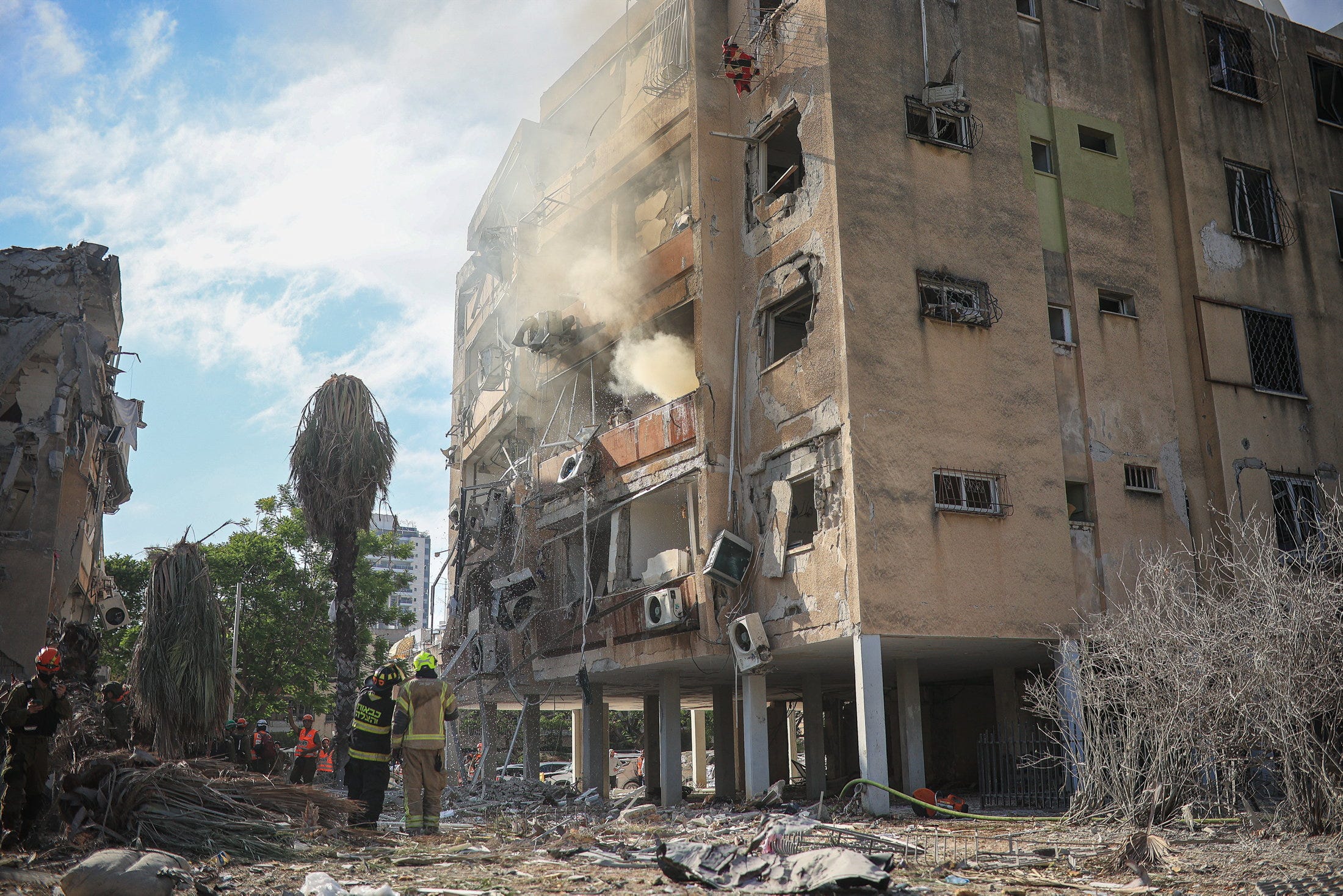
"Let's drop the big one and see what happens," Randy Newman wrote in the 1970s, seemingly prophesying the most eccentric American president of them all.
Although Trump is only contemplating the use of a huge conventional bomb, and not an atom bomb, even a genius songwriter like Newman wasn't able to foresee a reality in which the U.S. ambassador to Israel prays publicly for Trump to get into a war, and the president's disappointment at the pale military parade he forced the army to hold in honor of his birthday is perceived as one of the considerations that might persuade him to bomb Iran.
Behind the scenes, a fierce debate is underway between hawks and doves in the Republican administration. The few security-firsters who remain around Trump in his second term are gung-ho for him to send in the bombers, as is the military. The MAGA folks are clinging to isolationist positions. Vice President JD Vance, one of the leading isolationists, nevertheless chose to come to Trump's defense in a long post on X on Wednesday.
Vance emphasized that the president has been against Iranian nuclear arms for more than a decade, negotiated with the Iranians to strike a deal, and is determined to deprive them of the possibility to enrich uranium for civilian purposes. Vance expressed confidence in Trump's considerations.
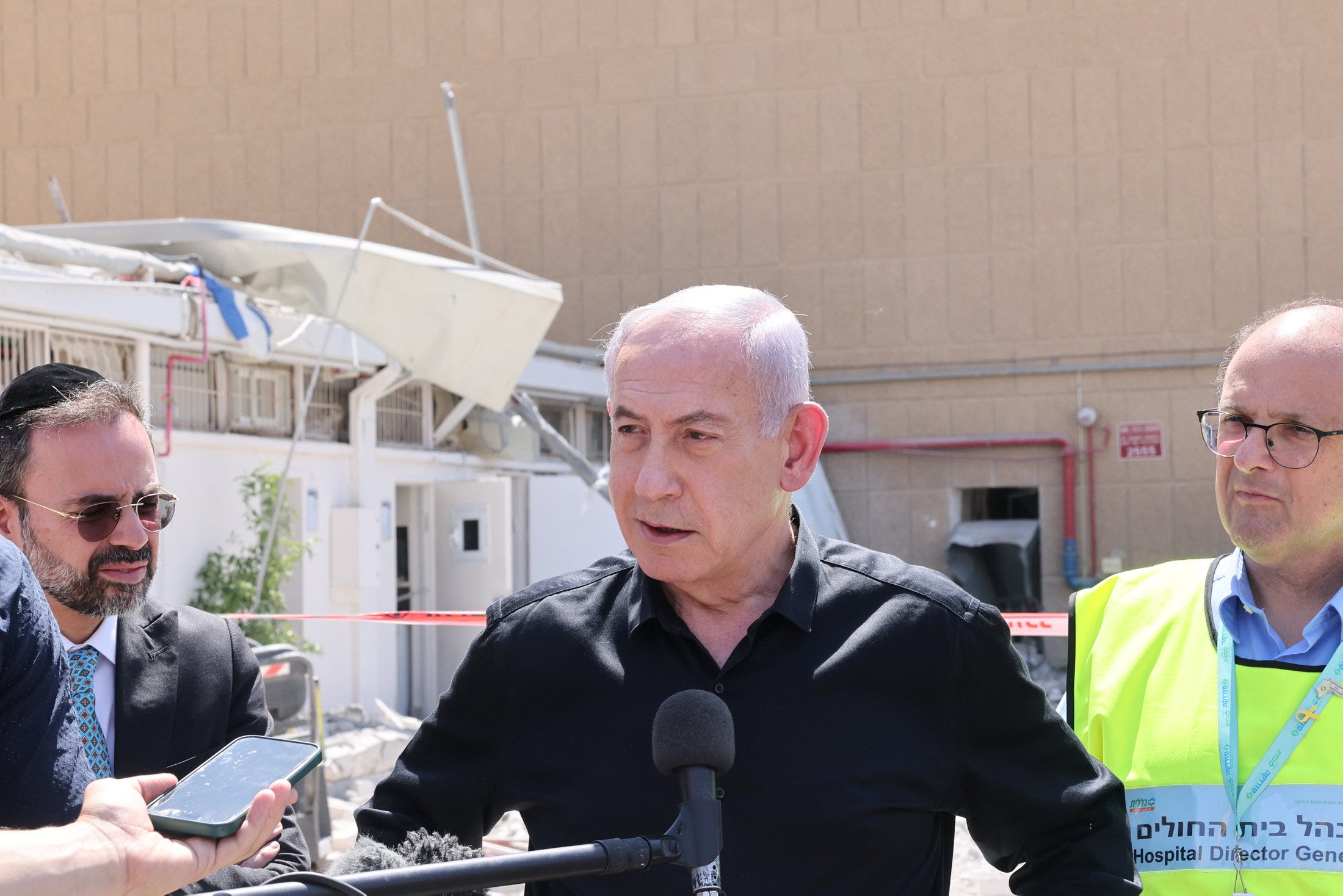
This is a battle that's being fought outside Israel's sphere of influence, with the exception of Netanyahu and possibly Strategic Affairs Minister Ron Dermer. The ties with the professional personnel in the Pentagon and the State Department are in disarray; few experts remain there, and their influence over Trump ranges from negligible to nonexistent.
For the time being, Iran is being careful not to get entangled in a direct provocation with the United States in the Middle East, so as not to push Trump to respond. It's also clear to Israel that without American engagement, it lacks the finishing touches for its offensive moves, notably at Fordow.
American experts estimate that to date, Israel has set back the nuclear project by about half a year. There's a dispute over how much of a delay bombing Fordow from the air would produce. Optimists say it will be close to two years, while pessimists speak of a few months. The concern is that Iran has already accumulated residual capabilities at other fortified sites, not all of which are fully known to intelligence.
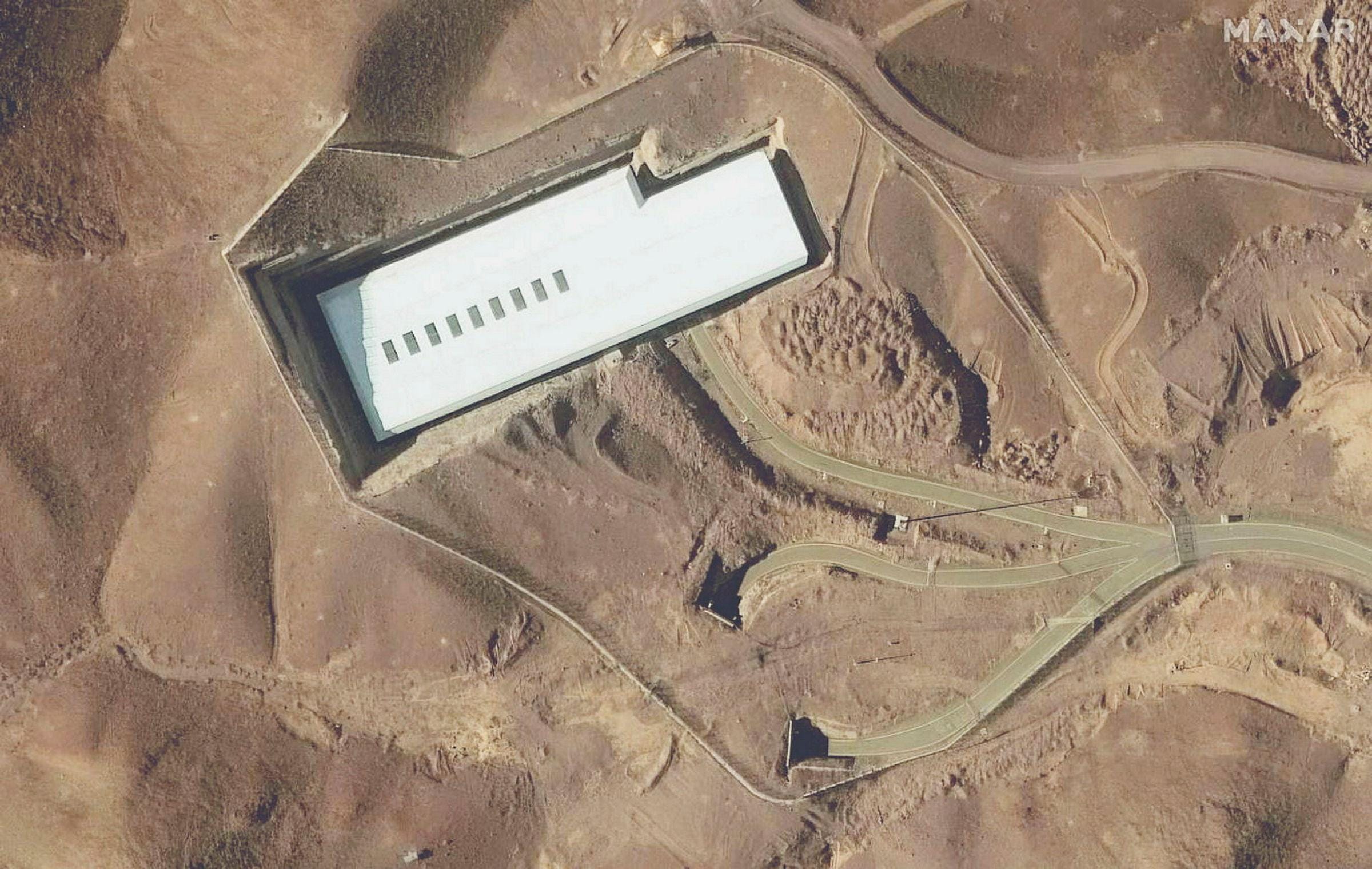
In any event, there is a large disparity between the American ability to penetrate the fortification with depth bombs, and the Israeli ability to do so. It was described to me as the difference between vaporizing the facility and scratching its edges. (The Guardian on Thursday expressed doubt even about the Americans' capabilities, and claimed that there are question marks about the penetrative capability of the U.S. military's "bunker busters.")
Both in a bubble
This was probably the most difficult week in the life of Iran's supreme leader, Ali Khamenei, since he succeeded Ayatollah Ruhollah Khomeini in 1989. The leader is stressed, isolated and has lost most of the security chiefs who worked with him for decades, veterans of the long and bloody war against Iraq in the 1980s. But in the meantime, the assessment of Israeli intelligence is that Khamenei is also stubborn and determined, and has no intention at present of buckling completely in the face of the Israeli and American demands.
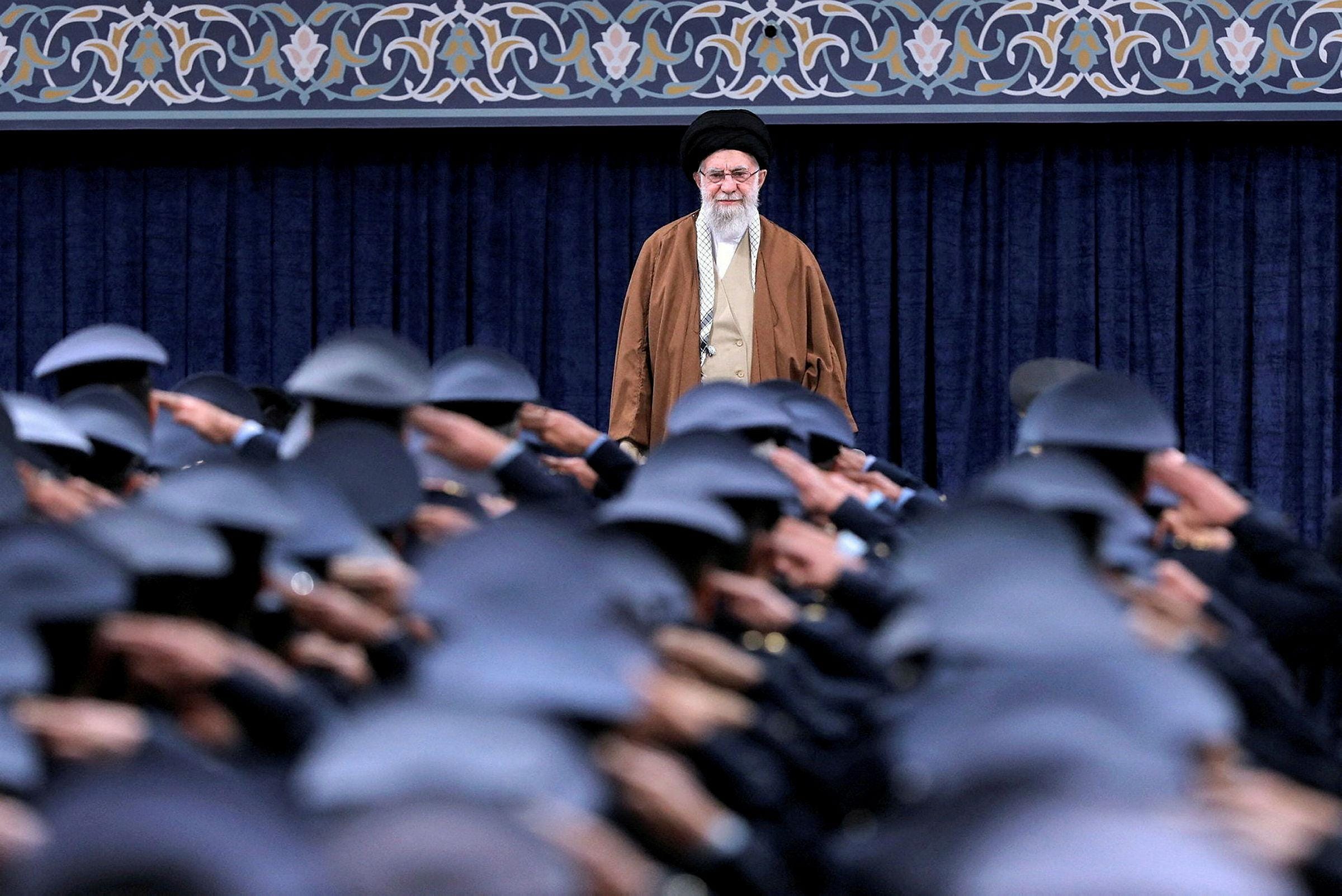
Israel is increasingly flirting with the idea of toppling the regime, as can be gleaned from Netanyahu's speeches and also from the embarrassing declarations by Defense Minister Israel Katz. On Thursday, while visiting the site of destruction where an Iranian rocket hit in Holon, the latter threatened Khamenei's life again, branded him "the modern Hitler" and said that "a dictator like him cannot continue to exist."
Beyond the fatuities, it's interesting that cabinet ministers are again taking to the streets without fear, after having refrained from all contact with an unfiltered public since the October 7 massacre. It's likely that they believe that the feeling of success among the country's citizens will cool the anger at the blunders that made possible Hamas' attack at the start of the war.
Netanyahu, too, has been seen increasingly in public. On Thursday he visited another missile-strike site: Soroka Medical Center in Be'er Sheva. But then he reverted to his mode of insensitivity again, attesting to how vastly removed he is from the people.
"There are people who are killed," he said. "Each of us bears a personal price… It's the second time that my son Avner has canceled a wedding because of a missile threat." As usual, he did not forget to heap praises on his wife's bravery.
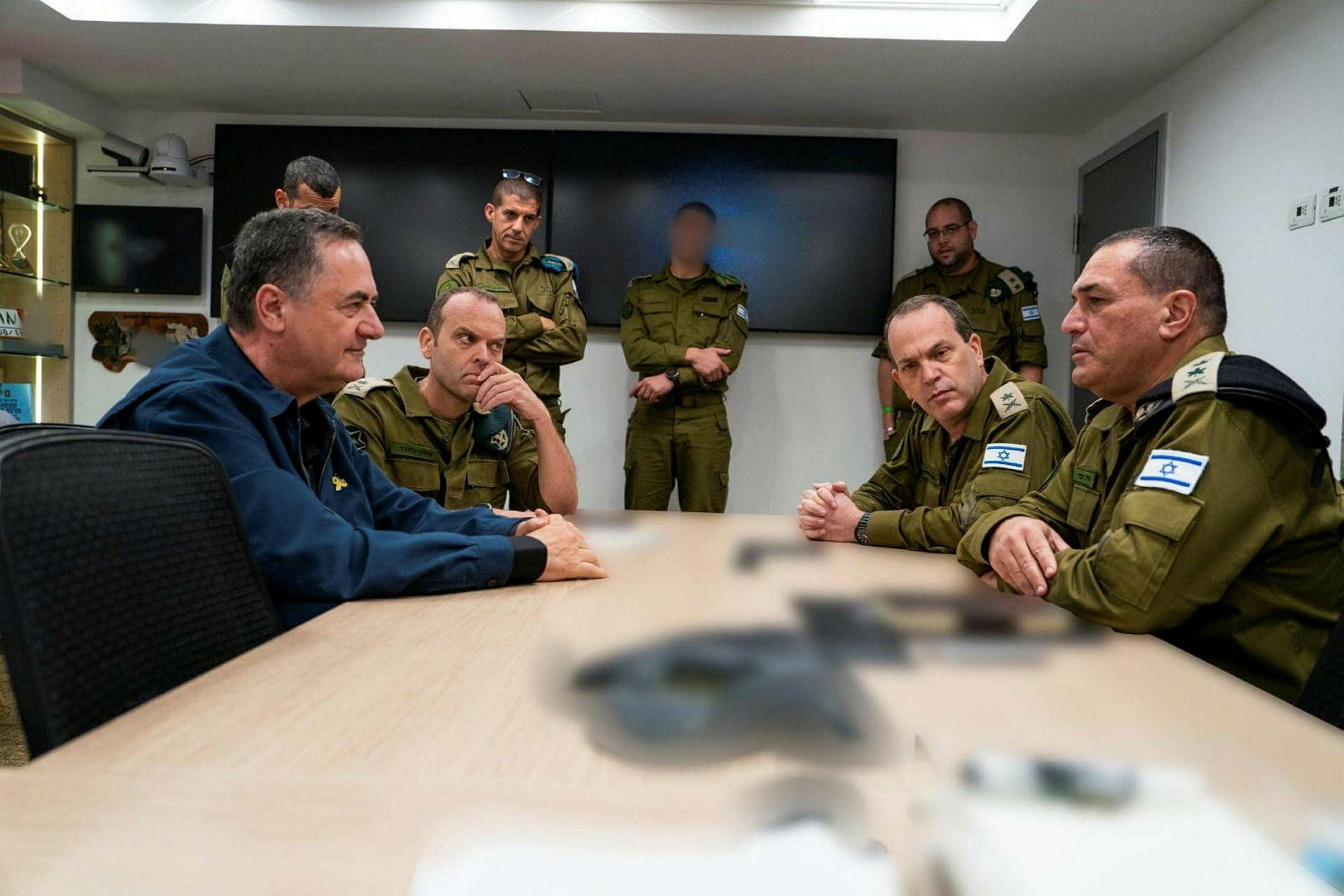
The prime minister isn't the only one in a bubble. The Israel Defense Forces' General Staff, too, is immersed in the successes of its offensive and isn't fully attentive to the concerns of Israelis. At least this time, there are those who insist on always having a TV screen on in the General Staff's "Pit," many floors underground, to monitor the newscasts. On October 7 they forgot to do that, and they missed some of the updates from the field for hours.
Anonymous cyberattacks and hacks into Iranian TV broadcasts, with calls to the masses to rise up, might also indicate Israel's true intentions about toppling the regime.
That wasn't the declared goal of the war at its start. The concern is that the effort to overthrow the regime could turn out to be a bridge too far. This isn't like the struggle against Hamas or Hezbollah, and even against those two terrorist organizations, Israel wasn't able to score any successes in this regard.

Netanyahu got a green light from Trump last week to launch an extensive offensive against Iran, and exploited the opportunity that was given to him after almost 20 years of promises, expectations and preparations. He bet the pot and at the moment Israel appears to have achieved a major operational and intelligence success. But if Trump doesn't join, Israel may find itself entangled in a war of attrition in which the air force conducts missile-launcher hunts across a vast territory, 1,500 kilometers from home.
And there's another problematic scenario: a forced end to the war without an agreement, in an unofficial arrangement of quiet in return for quiet. Those who have tried in the past few days to suggest to Netanyahu that he declare victory and end the war have been met with a categorical refusal.
If it's up to the prime minister, the war will continue and lead to one of two results: an Iranian defeat thanks to U.S. intervention, or a new agreement that will restrain its nuclear program completely. Once more it's impossible to evade the impression that Netanyahu embarked on a new war without a calculated exit strategy. He attacks and hopes for the best.
In the meantime, The Wall Street Journal has entered another factor into the equation. It wrote that Israel has a limited number of Arrow missile interceptors left. The numbers are not being published, but it's clear that the Iranians are counting on a competition based mainly on the ability to cope with missile strikes and endurance.

Although the multiple hits on Thursday morning, notably a direct hit on Soroka, didn't cause loss of life this time, they showed that Israel is still exposed. The war's extension into a war of attrition will stretch the nerves of the civilian population. And serious damage will spur the government and the army to launch increasingly harsh attacks in Iran, utilizing the superiority of the air force.
The heavy barrage on Thursday morning was launched shortly after Home Front Command eased the directives to the public and allowed a partial return to work. In the background is heavy pressure by the Finance Ministry to cut down the costs of the war, but ordinary citizens apparently thought that the new directives reflected a downgrading of the danger.
The rate of the missile strikes and their scale make it perfectly clear that Iran is grappling with difficulties following the liquidation of its command and control chains, and the continuous threat of the air force to its surface-to-air missile units, their launchers and their depots.
At the same time, the Iranians are trying to flood the interceptor systems by launching heavy and focused volleys from areas farther from Israel (to avoid being hit by the air force), and on Thursday they also used missiles with multiple warheads, something like cluster bombs, with the aim of increasing the damage.
Post a Comment for "Trump's "We'll See" Approach May Be Masking His True Intentions in the Israel-Iran Conflict"
Post a Comment